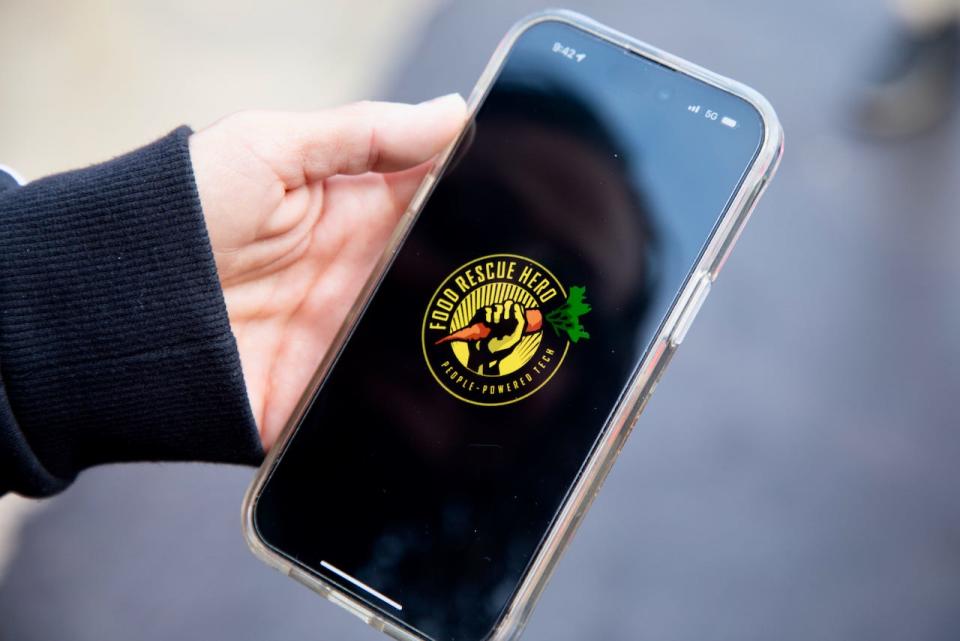MiSustainable Holland: Lakeshore Food Rescue feeds people, saves resources

HOLLAND — Anyone who's fed a toddler has seen food waste firsthand. Parents know the struggle of cutting off unwanted crusts and peels or having a full plate of food rejected.
But food that goes from the dinner table to the trash is just one piece of the full food waste picture. Food is wasted at every stage of the food supply chain — during production, transportation, distribution and at retail outlets and in homes.
In one year, the United States generates 91 million tons of surplus food, which is 38 percent of total production, according to ReFED, a national nonprofit dedicated to ending food waste. Uneaten food consumes 22 percent of freshwater use, 16 percent of U.S. cropland use and 24 percent of landfill inputs, the group notes. Food waste cost the U.S. economy $310 billion in 2021 alone.
More: Looking to help address food insecurity in Ottawa County? There’s an app for that
The magnitude of food waste is especially staggering when we consider the fact that over 22,000 of our neighbors in Ottawa County are food insecure, according to research by Feeding America West Michigan.
“But wasted food isn't just a social or humanitarian concern — it's an environmental one,” argues the World Wildlife Fund. “When we waste food, we also waste all the energy and water it takes to grow, harvest, transport, and package it. And if food goes to the landfill and rots, it produces methane — a greenhouse gas even more potent than carbon dioxide.”
Community Action House, in partnership with Ottawa Food, is expanding the Lakeshore Food Rescue Program. They're harnessing the power of volunteers to partner with grocery stores, food pantries, government agencies, and businesses to greatly reduce waste by making excess fresh and healthy food available to those who need it most. Good food belongs with people, not landfills.
Local businesses with any amount of surplus food can partner with Lakeshore Food Rescue to redirect food away from landfills and into their local communities. The team provides the logistics, while volunteers supply time and transportation and local nonprofits receive food to distribute to families in need.

Restaurants, farms, stores and other agencies interested in reducing food waste can learn more and join the Lakeshore Food Rescue at lakeshorefoodrescue.org. Individuals interested in flexible volunteer shifts can download the Food Rescue Hero app and find Lakeshore Food Rescue along the West Michigan Lakeshore.
During the first half of 2023, Lakeshore Food Rescue diverted over 800,000 pounds of good food away from the landfill. Over 90 percent of this food was successfully redistributed to neighbors in our community. The remainder found new life through Eighth Day Farm and Perfect Circle Recycling to be processed for compost, animal feed or energy use.
The environmental benefit of this rescued food means 1,131.48 tons of carbon dioxide equivalent was avoided, equal to 245 passenger vehicles driven for one year. Also, 57.22 million gallons of water were saved, the amount of 87 olympic-size swimming pools.
Subscribe: Receive unlimited digital access to your local news coverage
Sept. 29 is the International Day of Awareness of Food Loss and Waste, as announced by the European Commission. Food waste is a global issue, but there are concrete steps you can take, here in our local community, to make a difference in ending food waste and fighting hunger.
Learn more about how you can join the movement at lakeshorefoodrescue.org!
— Krista Burgett is the Lakeshore Food Rescue program manager at Community Action House.
About This Series:MiSustainable Holland is a collection of community voices sharing updates about local sustainability initiatives.This Week’s Sustainability Framework Theme: Community and Neighborhood: The places we live and the individuals we interact with support the development of our personalities and perspectives on life. Encouraging vital and effective communities is essential.
This article originally appeared on The Holland Sentinel: MiSustainable Holland: Lakeshore Food Rescue feeds people, saves resources

